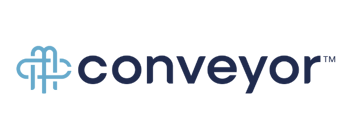If you’ve ever looked into digital marketing solutions for your B2B company, chances are you’ve heard about the power of Facebook advertising. With 2 billion monthly users, Facebook is a surefire way to reach a vast range of audiences.
While you might’ve noticed — or even fallen victim to — B2C advertising on Facebook (for example, that post you see mid-scroll...and mid-caffeine-slump...that reminds you the coffee maker you’ve been fantasizing about is on sale), your Facebook advertising as a B2B company will differ in terms of goals and underlying strategy.
Here’s our quick go-to guide on how B2B marketers can use advertising on Facebook effectively:
1. Create a Facebook page for your business
If you don’t have one already, create a business page that represents your brand. A Facebook Business Page is required in order to create Facebook ads, and will enable you to acquire a following (comprised of fans who “like” the page) to whom you’ll be able to promote your content and offerings.
Your business page will allow you to generate and share the content your marketing team produces or finds relevant to your industry. Unfortunately, the reach of your organic content is limited to only those who follow your page and/or share content from it.
As of late 2019, the average reach for Facebook posts was down by 2.2%, meaning that brands could reasonably expect their posts to be seen by about 5.5% of their Page’s followers. Big brands with massive follower counts can expect even lower averages. This is where Facebook advertisements prove themselves valuable in terms of reaching a larger audience pool.
2. Determine your campaign goals
When narrowing down goals for your Facebook advertising campaign, consider how your audience is using the platform in the first place. Unlike Google, where your audience is actively searching for a solution, Facebook is more suitable for increasing awareness among potential buyers, and subsequently nurturing those who show interest in your solution.
Below are some examples of how Facebook advertising fits into your overall B2B digital marketing strategy:
- Increase brand (and product/service) awareness
- Build relationships
- Thought leadership; showcase your knowledge or expertise
- Target various stages in your target audience’s buying process
Your goals will inform the messages you want to convey (more on that later) and where you’ll want to drive those who see your Facebook ad. Informational content such as a blog post, for example, will feel less sales-y to prospects than if they’re immediately directed to a signup form or sent a meeting link.
Once you’ve established your goals, you’ll have a better idea as to the metrics you’ll want to track. Blog or landing page views are a much more substantial indicator of success than “likes.”
3. Target your prospects
In order to reach your marketing goals, you’ll need to get in front of the right people. When creating an ad, Facebook allows you to define and customize your audience according to age, gender, location, demographic, and interests. It’s worth noting, however, that some states and industries have audience targeting restrictions — all the more reason to stay on top of the policies that pertain to your organization.
Through Facebook’s audience targeting, B2B marketers can target prospects using information such as the job they have listed, or a major life event appearing on their profile. Now that you know how specific you can get in terms of audience targeting, tailor your messaging accordingly.
For example, a target buyer persona for a sales software solution provider may be a new VP of Sales or Business Development who is looking to overhaul the current company program. Tailoring the ad’s message to the needs of the persona — i.e. a customer success story that meets their pain points — is likely to spark interest and result in a page view.
4. Ensure your Facebook Advertising strategy fits into your larger B2B digital marketing strategy
As a B2B marketer, you’ll get the most out of Facebook advertising when it’s incorporated into your overall digital marketing strategy. For example, when prospects take the desired action from your Facebook ad, such as visiting and reading a blog post on your website, you can remarket to them by capturing their information using an ad pixel.
What is a Facebook ad pixel?
The Facebook pixel is an analytics tool that allows you to measure the effectiveness of your advertising by understanding the actions people take on your website. The pixel can be used to make sure your ads are shown to the right people, drive more sales, and measure the results of your ads.
Simply install the Facebook pixel on your site that captures your website traffic (you can even limit it to certain pages – a pricing page, for instance), and then you can deliver ads to reach those specific website visitors when they’re on Facebook. The pixel also allows you to expand your audience by creating a lookalike audience based on people like those that have viewed your pages. Nurture (and manage) these leads by providing them with relevant offerings and thought leadership content through targeted email messages or chat.
What’s great about paid advertising is that it tends to increase website visits from other traffic sources as well. For example, prospects who have been targeted by your paid ads during the “information seeking” phase will then recall your company name when the time comes to address the “problem” your B2B company solves and return to your website either directly or through a Google search.
Remember, paid efforts shouldn’t be the only piece of your B2B digital marketing strategy. Getting prospects to know and trust your brand first through other channels like content, SEO, press, PR, and events can help your advertising go a long way.
5. Test and perfect
Always make sure to test your ad content to find out what performs best. Do this by trying out different combinations of images, wording, and Calls-to-Action. If you have wiggle room in your budget, don’t be afraid to test your ads on different audiences to see which works best for your business!
Facebook advertisements are there to help you meet your company’s needs, regardless of how far along you are in developing and executing your B2B digital marketing strategy.
As you incorporate Facebook advertisements into your overall strategy, be sure to reference our blog post, 10 Marketing Mistakes Even the Smartest Companies Make — or Contact us to see how we can help you create a marketing strategy that leads to results for you and your business.



